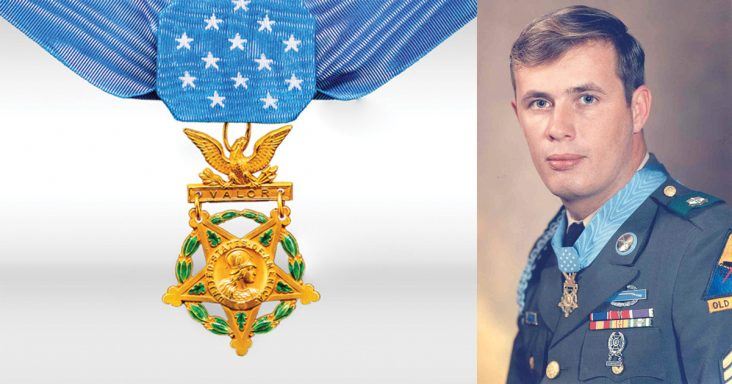Caraway native Nick Bacon remembered for bravery in Vietnam
by November 3, 2019 6:06 pm 2,842 views

Caraway native Nick Bacon was fascinated by his uncle’s tales from World War II.
Those tales and his father contracting polio inspired Bacon to quit school after the ninth grade and forge his mother’s signature so he could join the Army at the tender age of 17. Little did he know that someday he would stand at the White House as President Richard Nixon gave him the Medal of Honor, and he would go down as the most decorated soldier from Arkansas during the Vietnam War.
Bacon passed away July 17, 2010, but the story about what he did one steamy day in the Vietnamese countryside still resonates.
He was born Nov. 25, 1945 in Caraway (Craighead County). A bad economy forced the Bacon family, with their eight children, to move to Arizona in the early 1950s. Bacon quit school after the ninth grade to help support his family, but his dream was to join the Army. His mother refused to sign for him, so at the age of 17 he forged her signature and joined the Arizona National Guard, according to the Encyclopedia of Arkansas.
About a year later, he joined the U.S. Army, and by 1966 he was serving his first tour in Vietnam. During his first tour, Bacon was injured three times.
Once, the helicopter he was flying in crashed with another helicopter. Bacon and one other soldier were the lone survivors of the crash. Bacon volunteered for a second tour, and it would lead up to the events that defined his life.
The Vietnam War has remained one of the most enigmatic wars fought by Americans. It started in 1964 and ended in 1973. During the war 8,744,000 Americans served in the theater and about 47,000 died in actual battle, according to the U.S. Department of Veterans Affairs. Another 10,000 or so died in the theater of battle, in addition to those lost directly in battle. About 153,000 were wounded, and Bacon was just one of 238 soldiers awarded the Medal of Honor during the war.
Bacon was sent to Hawaii after his first tour to train soldiers, and he decided to return with them. On Aug. 26, 1968, Bacon’s company had been ordered to aid the First Calvary Division near the city of Tam Ky in South Vietnam. As the company moved through the countryside, North Vietnamese units began to assail them from a nearby village.
Bombs exploded. Bullets whirled. Men began to die.
Bacon organized his men and began to advance on an enemy position, according to the Medal of Honor citation. At one point he alone destroyed a hostile bunker with grenades. His platoon leader was hit and Bacon dragged him to safety. Bacon assumed command of the platoon and led his men to attack the machine gun position that injured his commander. He killed the enemy gun crew in what the citation noted was a “single-handed effort.”
“I was just having a hell of a time … it was just hell for awhile,” Bacon said during an interview with AETN years before his death.
When another platoon leader was wounded on the battlefield, Bacon took command of that platoon. He personally killed four enemy combatants after assuming command, and he also destroyed an anti-tank weapon that was prohibiting American tanks from joining the fight. During a fierce firefight, Bacon exposed himself to gunfire by climbing onto a tank as he directed American operations.
“As a result of Sgt. Bacon’s extraordinary efforts, his company was able to move forward, eliminate the enemy positions, and rescue men trapped at the front. Sgt. Bacon’s bravery at the risk of his life was in the highest traditions of the military service and reflects great credit upon himself, his unit, and the U.S.,” his citation noted.
Bacon was extremely proud that he and his men were able to retrieve all the wounded and dead soldiers during the battle. Weeks after the fight, Bacon received the Distinguished Service Cross. Bacon’s efforts were so extraordinary, that he was nominated and received the Medal of Honor on Nov. 24, 1969 — one day before his 24th birthday. Bacon wanted to serve a third tour, but was denied due to the military policy that doesn’t allow Medal of Honor recipients to return to active war zones.
He retired after a 21-year career in the Army. Bacon worked for the Office of Veterans Affairs in Arizona. He returned to his native state in 1993 to serve as the director of the Arkansas Department for Veterans Affairs. He was instrumental in organizing an effort to build a memorial to honor all Medal of Honor winners from the state. Bacon retired in 2005 and settled in Rose Bud, a small town in White County. He died from cancer five years later.
Did Bacon think his actions were remarkable that day?
“No. I feel like I was doing what everybody else was doing,” he said.
